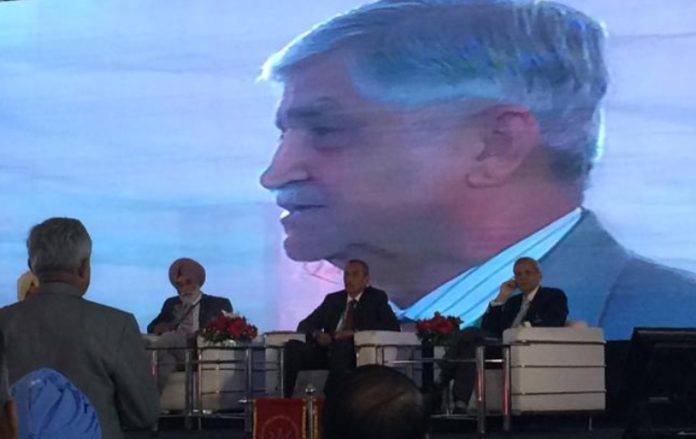Chandigarh: Two years after the surgical strikes were carried out by the Army across theLine of Control, War veterans, Army Generals and military experts discussed the issue of `surgical strikes’ on day one of three-day Military Literature festival in Chandigarh on Friday. In the discussion, participants objected to the politicisation of the surgical strikes and to the constant hype around the operation was unwarranted. The discussion was attended by Punjab Governor VP Singh Badnore, former Generals and Army Commanders. The discussion became significant because of the presence former Army Chief General V P Malik and Gen D S Hooda who was the Northern Army commander when the surgical strikes were carried out on September 29, 2016 across the LoC as a response to a terrorist attack in Uri earlier that month.

Following the discussion at the panel discussion on the topic, ‘Role of Cross-Border Operations and Surgical Strikes,’ and subsequent question answer session, it was evident that military experts, retired army generals and war veterans were not in favour of describing the September 2016 strikes which had in fact been a reactionary strike conducted after the Pathankot and Uri attacks on the Indian Army, as surgical strikes.Instead it should have been described as raid against Pakistan. Experts on defence issues felt that the idea of giving political colour to military achievements will prove deterimental for the forces. Also, not maintaining the operational decency and sanctity of the operations undertaken by the defence forces, would mislead the future generations of defence personnel.
General Hooda said that it was necessary for the Government and army to publicise the surgical strikes. Infiltration bids and terror attacks from Pakistan especially after 26/11 had provoked national outrage and there was tremendous public pressure on the government to retaliate. This happened after terror attack in Uri sector in 2016 too. All of this had an impact on the morale of defence personnel.However, in reply to a question from the audience he said that it would have been better had we done it (surgical strikes) secretly. The aim of any such offensive had to be not only tactical but strategic too, which substantially hampers enemy morale, he added.
General Hooda further said that the celebration of surgical strike on its second anniversary on September 29, 2016 was not necessary exercise. The retired General said that he was unsure of the fact that the purpose of surgical strike was fully achieved. .Defence commentator Colonel (Retd.) Ajai Shukla cautioned against the recent trend to give colour to military achievements with political motives. He said that there is a need to maintain operational decency and sanctity of the operations undertaken by the defence forces. According to him, the excessive publicity of the September 2016 strikes, has actually set a dangerous benchmark for the Indian political dispensation, which they would find difficult to maintain in the eventuality of future terror attacks. Colonel Shukla believed that surgical strike by India has not discouraged Pakistan from sponsoring terrorist activities in India.
Speaking on the occasion, Lt General (retd) N S Brar cited the example of the 1981 Israeli air strikes on Iraqi nuclear sites, which had caused considerable damage and stressed on the need to ensure long-term impact on the enemy before undertaking any such operation in the future.
General Brar also cautioned the political bosses against being adventurists and asked if the political bosses would have taken responsibility had there been any causalities in the strikes.















